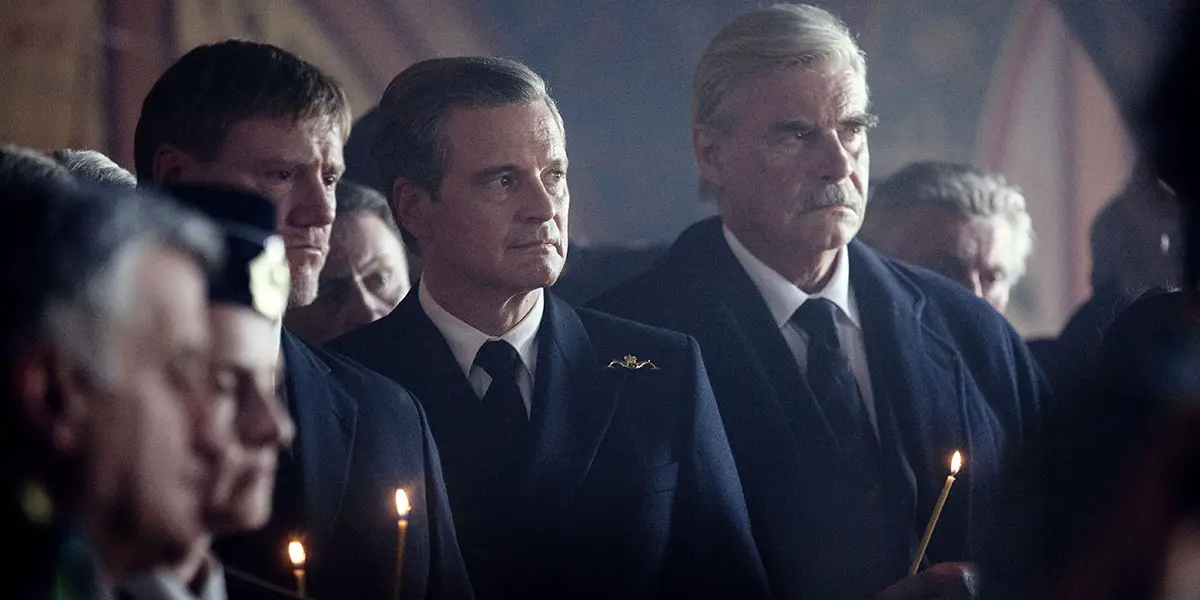
Kursk tells a worthy story but one wonders what the film would look like if left to examine everything from the submarine to the government.
It’s been just over 18 years in which the submarine fell to the bottom of the Barents Sea. This was a submarine that was over 200 yards long. The submarine in the Russian Navy’s Northern Fleet is said to be unsinkable. Unlike the Titanic, most of the men serving on board had a fighting chance to be saved. Unfortunately for those men, the Russian government got in the way. Despite running a naval exercise featuring almost three dozen vessels, the government didn’t want to risk the British knowing anything. This is even after accepting the fact that their own vessels weren’t going to save them.
Mikhail Averin (Matthias Schoenaerts) is depicted as the true leader of the sub. He’s married to Tanya (Léa Seydoux) with one son, Misha (Artemiy Spiridonov), and another child on the way. In reality, he didn’t have any children. Director Thomas Vinterberg and screenwriter Robert Rodat are able to use Mikhail’s family as a way of representing all those children who would grow up without a parent. Much as Mikhail is the leader beneath the surface, Tanya takes the chief leadership role among the wives and girlfriends.
Commodore David Russell (Colin Firth) of the British Royal Navy knew that the Russians didn’t have the means to perform a rescue option. He reaches out to Admiral Gruzinsky (Peter Simonischek) but because of the Russian government, Russell isn’t allowed to help. Admiral Petrenko (Max von Sydow) stands in for the entire government so to speak. He’s the one that makes the orders and tells Adm. Gruzinsky to not allow foreign help. He is the man who betrayed everyone holding on for dear life under the sea.
Rodat bases his script on the Robert Moore book about the K-141 Kursk. We get to know the players before we get to the gist of the action. By giving us an opportunity to know them, it means that their losses will come with a harder impact. There’s so much potential in exploring many sides of what happened. One can only do so much within the submarine to the point in which the scenes are needed on the surface. Those scenes come in the form of the British offering their help and the Russians acting stubborn or hiding the truth.
That’s the part I don’t get. These women have husbands and boyfriends on this sub. Don’t they have a right to know what happened to them? Don’t they have a right to hear the truth? Instead, they get redirected every single time they ask for updates. It reaches the point in which–honestly–enough becomes enough. If the truth doesn’t start getting told, a riot would surely break out.
The men who died in the Kursk submarine left behind some 71 children according to the end titles. If the Russians weren’t so stubborn, think of how many men would have survived. The fact that the British offered their help only to be rejected until it is too late is really all we need to know. In real life, 23 of the 118 men on board the sub would survive. The film goes all in for drama and leads audiences in thinking everyone died.
Vinterberg gets some solid performances out of this international cast of actors. I especially like that that the actors cast in the roles of Russians have gone to people who are not from English-speaking countries.
There’s a mixture of films going on here to the point in which Thomas Vinterberg’s Kursk never reaches its full potential.
DIRECTOR: Thomas Vinterberg
SCREENWRITER: Robert Rodat
CAST: Matthias Schoenaerts, Léa Seydoux, Colin Firth, Peter Simonischek, August Diehl, Artemiy Spiridonov, and Max von Sydow




